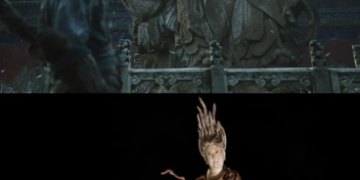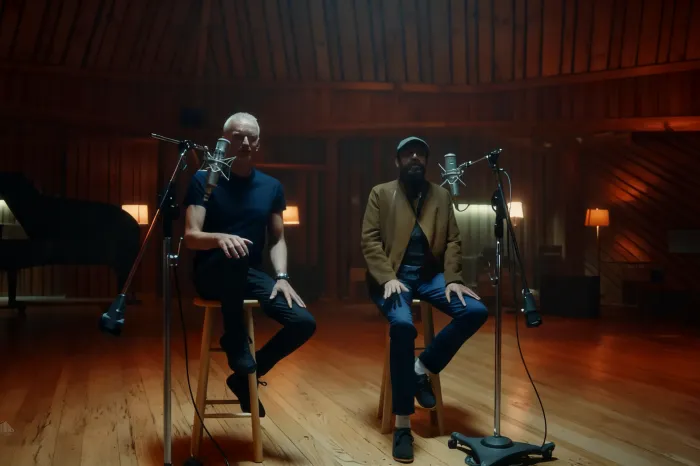Sing Me a Sad Song: Why We Can’t Resist Melancholy Melodies
When it comes to music, few themes are as universally relatable as lost love. Whether your heartbreak is the result of an epic breakup, an unreturned text, or the emotional devastation of using up the last of your Wi-Fi data (tragic!), there’s almost certainly a song out there that’ll speak directly to your soul. Why do we gravitate toward the soundtracks of our heartbreaks? Neuroscientists haven’t weighed in definitively, but it’s clear that songs about lost love have an uncanny power to soothe, commiserate, and—if we’re lucky—let us belt a chorus in our cars till the traffic light turns green.
The Science (Sort Of) of a Heartbreak Anthem
Let’s begin with the philosophy of the heartbreak anthem. Is it the soaring ballads? The twinkling synths? Or the chorus that hits harder than an unexpected phone bill? Not quite science, but one only needs glace at the 2000s teasers—Adele’s crystalline cover of Bob Dylan’s “Make You Feel My Love” or Coldplay’s tear-jerking “The Scientist”—to see how the formula works: take raw emotion, add a sprinkle of nostalgia, dash in some melancholy piano or guitar, and let the tears flow. Apparently, no matter how many candles you’re putting on your birthday cake, these songs will always leave you misty-eyed and searching for an old love on social media (don’t do it).
Adele’s ability to turn heartbreak into art is legendary. Her cover of Dylan’s classic captures the very soul of romantic longing. Coldplay, meanwhile, has firmly cemented itself as the soundtrack to every breakup montage you’ll ever see. If heartbreak were a sport, Chris Martin would be its disqualified champion—too sad to compete fairly!
Miranda Lambert’s “The House That Built Me” may sound like a home improvement ad, but its bittersweet nostalgia makes listeners want to hug drywall and cry. It’s not just the lyrics that get you; it’s the reminder of childhood memories, youthful romance, and the tragic realization that even the best acoustic wallpaper can’t insulate against lost love.
Genre-Bending Heartbreak: From Bachata to Shoegaze
Of course, lost love songs aren’t just confined to piano weepers. They cross boundaries, languages, and decades. Take Juan Luis Guerra’s, “Estrellitas y Duendes”—recently revived in a surprise duet with Sting, who bravely tackled poetic Spanish lyrics and emerged with his dignity (mostly) intact. The song fuses bachata and bolero, and its metaphor-rich lyrics compare living in memory to a rainfall of stars and elves. If your ex ever described you as an “aguacero of duendes,” congratulations—someone out there is writing songs about you.
Moving from salsa halls to dream pop indie clubs, Hatchie’s “Liquorice” album delivers its own blend of bittersweet brilliance. Songs like “Carousel” and “Wonder” explore fading romance, imminent break-ups, and that amusing stage where the only remedy is a synth-drenched binge of introspection. Hatchie’s sound swerves between reverb-shrouded guitars and glossy pop melodies, a reminder that emotional devastation comes in many flavors—sweet, salty, and bitter, like the titular candy.
The crossover continues with Michael Jackson’s “She’s Out of My Life (Demo),” which distills heartbreak down to just vocals and guitar. MJ’s pain—genuine and raw—elevates a straightforward ballad into a masterclass in emotional overload. For those partial to classic rock greatness, Jimmy Page swears that Led Zeppelin’s “Since I’ve Been Loving You” delivers a blues breakdown so intense it should come with its own warning label: “May induce air guitar followed by existential dread.”
The Lost, the Found, and the Nostalgic: A Musical Archeology
Not all music lost to heartbreak is recorded in the bright lights of a big studio. Sometimes, the songs themselves are buried—almost literally. Broadway orchestrator Don Rose unearthed eighty boxes of original scores for musicals from the 1920s and 1930s in a Secaucus warehouse, discovering tunes lost to history, some of which dealt with love in all its doomed variety. The journey to recovering lost music is a parallel to emotional recovery: slow, dirty, and sometimes finding only three-quarters of what once was. Still, it’s a testament to how deeply we want to hold onto songs about loss—if not the actual lovers themselves.
Yumi Zouma’s new single “Phoebe’s Song” proves that even in 2026, artists can find bold romance amid the mess of modern heartbreak. With lyrics about “making movies in the back of my head,” the band takes an affectionate wink at nostalgia while creating an audaciously catchy key change that transforms their lost love lament into teen-movie euphoria—the cinematic soundtrack to your next social faux pas.
Modern Heartbreak: Burnout and Family Ballads
Lost love is more than romantic heartbreak; it can also involve self-love and recovery. When AKMU’s Lee Soo-hyun struggled with burnout after her brother’s enlistment, the family rallied with music as a remedy. Chan-hyuk’s composition “Love Lee”—written for his sister—shows that sometimes the best recovery comes not from rekindled romance but from rediscovering joy in song and connection. Who says heartbreak songs have to be about exes? Sometimes, they’re about supporting yourself through the finest musical form of family group therapy.
Funny Thing About Sad Songs
In the end, lost love songs are both a balm and a badge of honor. They let us wallow with dignity, reminisce with drama, or laugh at ourselves for ever thinking we could text our way through emotional catastrophe. From sweeping orchestras to lo-fi demos, from Broadway classics to indie nostalgia, every heartbreak song is a testament to our resilience and our ability to find humor amid despair.
So next time you cue up Adele, Sting, Hatchie, or even a forgotten Gershwin show tune, remember: Shed a tear, crack a smile, and be grateful the world decided to keep writing lost love songs. They’re the only proof you need that everyone, everywhere, is just one chorus away from a good cry. Or, if you’re lucky, a laugh.





























